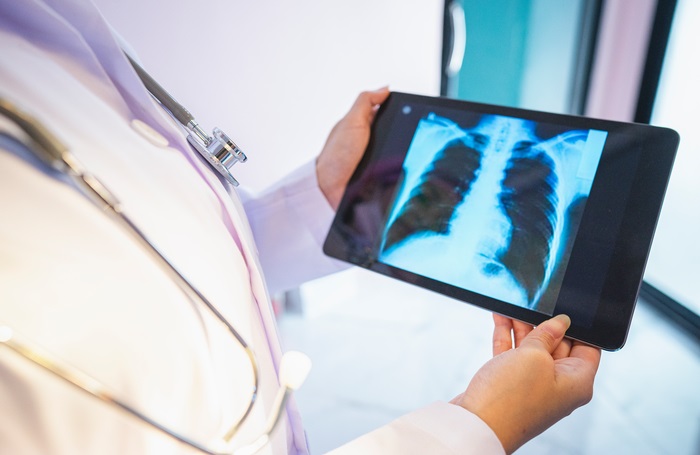Why You Should Care About Lung Cancer, Even if You Don't Smoke
January 3, 2023
 Did you know that as many as one in five cases of lung cancer occur among people who never (or hardly) smoked in their lifetime?
Did you know that as many as one in five cases of lung cancer occur among people who never (or hardly) smoked in their lifetime?
Unfortunately, this form of cancer is all too common. In fact, according to the Centers for Disease Control and Prevention, lung cancer is the third-most-common cancer in the United States. And while lung cancer is frequently thought to be caused by smoking tobacco via cigarettes, pipes or cigars, as many as 10 to 20 percent of lung cancers diagnosed each year happen to people who have never smoked (or who have smoked fewer than 100 cigarettes in their lifetime).
Recognizing the Symptoms
Lung cancer can originate in the lungs, in both the airways that lead in (bronchi and bronchioles) and the air sacs (alveoli) themselves, or spread there from another part of the body. Regardless, patients who are diagnosed with lung cancer often report these symptoms:
- Coughing
- Chest pain
- Difficulty breathing
- Coughing up blood
- Constant fatigue
- Unintentional weight loss
- Swollen lymph nodes near the chest area
If you're experiencing these symptoms (especially if there seems to be no other cause), contact your physician immediately. Remember that with cancer, catching it early can dramatically improve your outcome.
Help Keep Your Lungs Healthy
The best way to avoid lung cancer is to take preventive action. Here are some tips for keeping your lungs healthy:
- Don't smoke, and if you already do, quit. Cigarette, cigar and pipe smoking also cause irreparable damage to the lungs. There is also a risk for those who are around the smoke, even if they don't smoke themselves - this is called secondhand smoke. According to the American Lung Association, secondhand smoke causes 7,330 deaths from lung cancer each year.
- If you smoke, it's never too late to make a healthy change. There are resources to assist you on your journey to quit. In addition, your primary care physician can help you quit smoking.
- Avoid exposure to pollutants (outdoor and indoor). Smoke, aerosol sprays and dusts can be hard on your lungs. Stay away from them when possible, especially in enclosed areas with poor ventilation.
- Take preventive measures to avoid colds and respiratory infections that could cause more serious illnesses (i.e., pneumonia or bronchitis).
- Get moving. Consult with your medical provider before implementing an exercise routine, but don't underestimate the power of a light walk or stretch.
- Have regular check-ups and listen to your body.
Fort Duncan Regional Medical Center offers a range of screening and treatment options, including pulmonary function tests, which can measure treatment progress and effectiveness for various kinds of lung conditions. Patient lung health is our priority, and you can rest assured that our physicians will develop an individualized approach to fit your needs.
